“The mountain is my home, my family, my protection, my land, the water I drink.”
They are the words of top Sinaloa Cartel leader Ismael “El Mayo” Zambada, who was arrested in the United States on Thursday along with Joaquín Guzmán López, one of the sons of imprisoned drug lord Joaquín “El Chapo” Guzmán Loera.
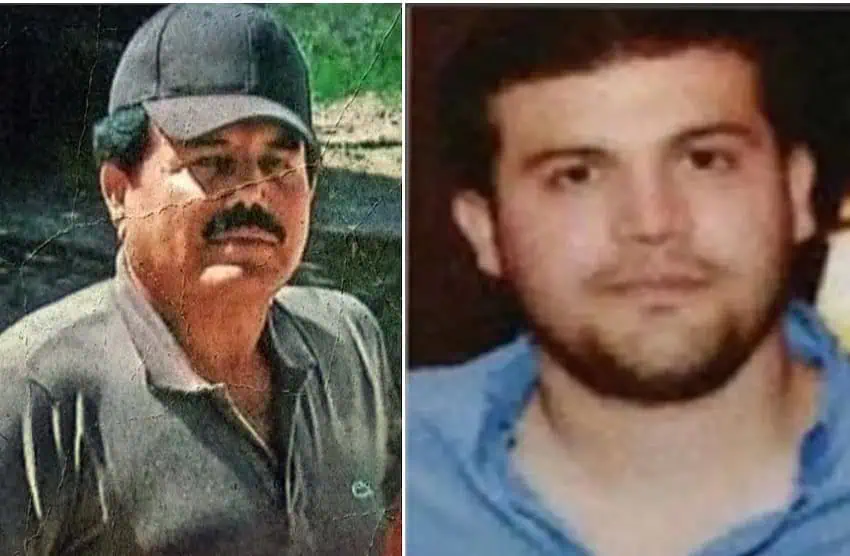
In a 2010 interview in Sinaloa with the now-deceased Proceso magazine founder and journalist Julio Scherer, Zambada also said that he could be captured “at any moment, or never.”
Fourteen years later — and for the first time ever in his long criminal career — his time finally came.
Who is El Mayo?
Zambada was born in 1948 in El Álamo, a town in the municipality of Culiacán, the capital of the state of Sinaloa.
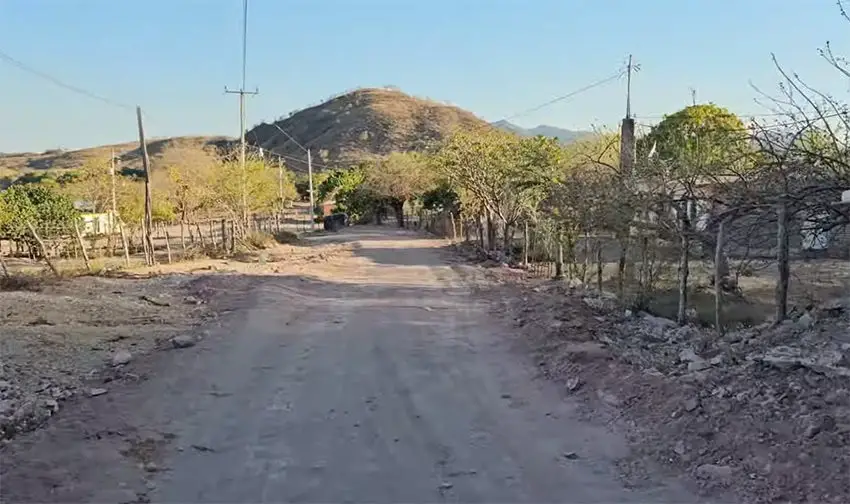
He was a poppy field worker and farmer before he began working for the Juárez Cartel in the 1980s.
Asked by Scherer how he first got involved in the world of drug trafficking, El Mayo simply — and repeatedly — responded “nomás,” or “I just did.”
Toward the end of the ’80s, Zambada, Guzmán Loera and others formed the Sinaloa Cartel, also known as the Pacific Cartel.
Over a period of decades, El Mayo, El Chapo and other Sinaloa Cartel members built a multi-billion-dollar empire on cocaine and heroin, among other drugs, as well as human trafficking.
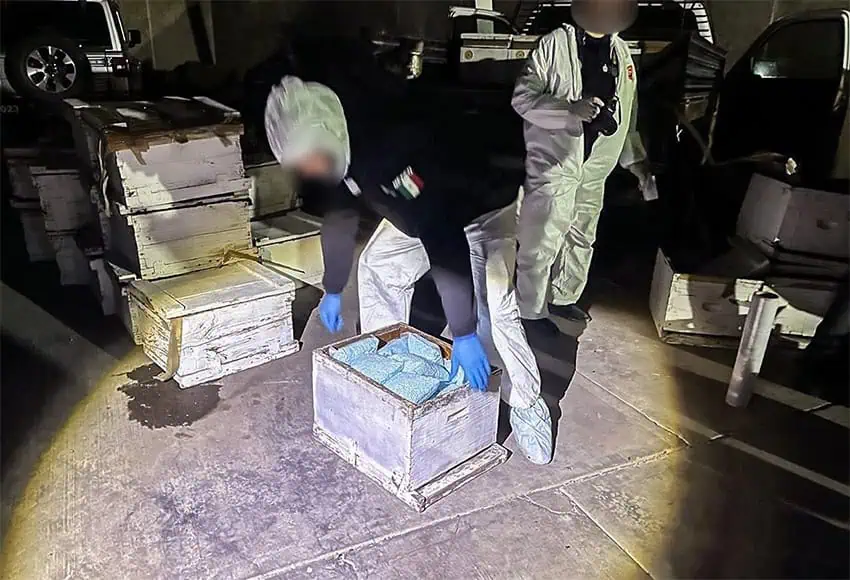
A Sinaloa faction led (or formerly led) by Zambada is currently regarded as the top smuggler of fentanyl into the United States.
In 2010, he told Proceso that he continued to work as a farmer and rancher in Sinaloa, but added: “If I can do some business in the United States, I do it.”
El Mayo and other Sinaloa Cartel leaders invested money obtained from drug trafficking into hundreds of companies, according to the U.S. Drug Enforcement Administration (DEA).
A water park and a children’s daycare center allegedly run by Zambada’s daughter María Teresa are among El Mayo’s many interests, according to a 2018 report. He also owns vast tracts of farmland in Sinaloa.
“He has a very diversified portfolio,” Mike Vigil, the former head of international operations for the DEA,” said at the time.
“Even though he’s only had maybe an elementary-school education, he’s received a Harvard-level education from some of the most prolific, knowledgeable and astute drug lords that Mexico has ever had,” he said.
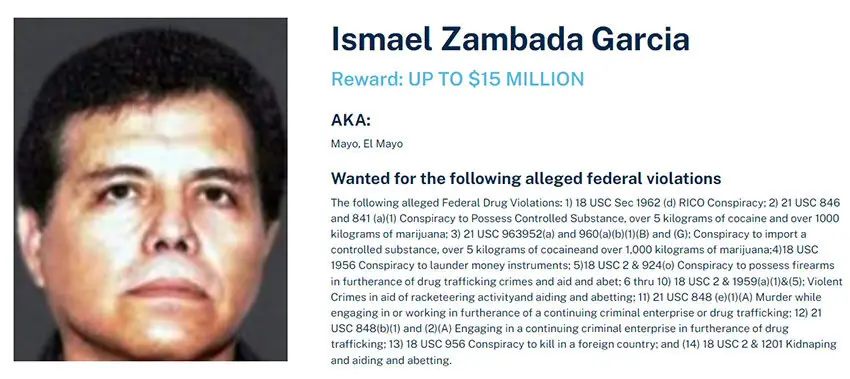
“… Mayo Zambada is one of the most astute drug traffickers that Mexico has ever spawned,” Vigil said.
The Associated Press reported that he “reputedly won the loyalty of locals in his home state of Sinaloa and neighboring Durango through his largess, sponsoring local farmers and distributing money and beer in his birthplace of El Álamo.”
One project he reportedly contributed to in Él Alamo was the reconstruction of the town church after it was damaged in a storm.
According to El País, Zambada served as “a bridge between government and the Sinaloa Cartel.”
Organized crime expert Chris Dalby told Mexico News Daily earlier this year that the Sinaloa Cartel has long-established criminal networks in northern Mexico that include corrupt municipal and state officials because “playing ball is just part of the game up there.”
Members of El Mayo’s family, including his sons, have also worked for the Sinaloa Cartel.
How did El Mayo avoid arrest for so long?
While his Sinaloa Cartel co-founder El Chapo was arrested and imprisoned on three occasions (he escaped from jail twice), Zambada had never been behind bars, until Thursday.
He had been sought for years by United States authorities, who were offering a reward of up to US $15 million for information that led to his arrest.
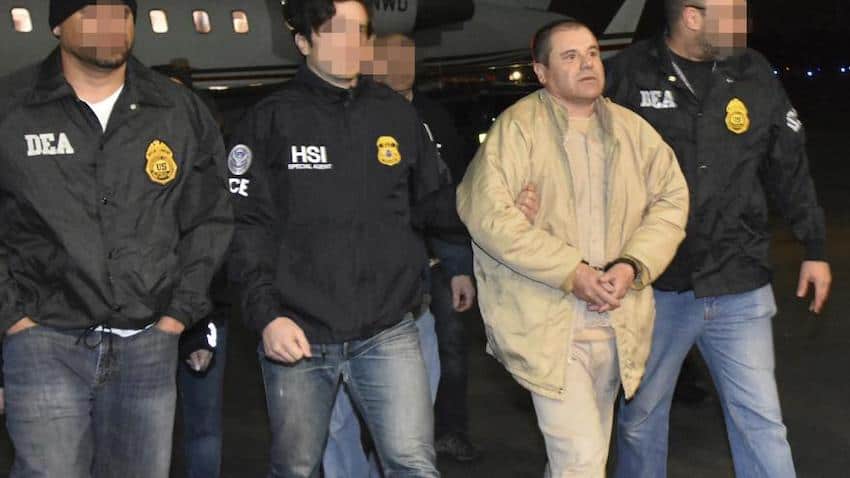
“Zambada Garcia is unique in that he has spent his entire adult life as a major international drug trafficker, yet he has never spent a day in jail,” the U.S. Department of State says on its website.
During a long criminal career, he maintained a much lower profile than Guzmán Loera, and took steps to ensure he remained beyond the reach of the long arm of the law.
“Zambada is known for being an ‘old-school’ narco, avoiding the limelight and operating in the shadows,” Reuters reported.
Margarito Flores, a former drug distributor for the Sinaloa Cartel in Chicago, told The Wall Street Journal that El Mayo “was very careful about security and didn’t use cellphones.”
Flores, who spent 12 years in jail on drug trafficking charges, also said that Zambada gave the impression that he was a simple rancher, eschewing common trappings of successful narcos such as expensive jewelry.
As El Mayo said himself in 2010, the mountainous region of Sinaloa where he lived also protected him.
“I have been up into those mountains and it’s very difficult to capture anybody,” Vigil, the former DEA official, said in 2018.
The details of how El Mayo came to arrive at an airport near El Paso on Thursday are not yet clear, but several reports citing United States officials said he was tricked into going to the U.S. by Joaquín Guzmán López, who reportedly told the capo they were going to inspect clandestine airfields or real estate at a location in Mexico.
Another possibility is that the 76-year-old drug lord — who is reportedly ill — decided to surrender after reaching some kind of agreement with United States authorities.
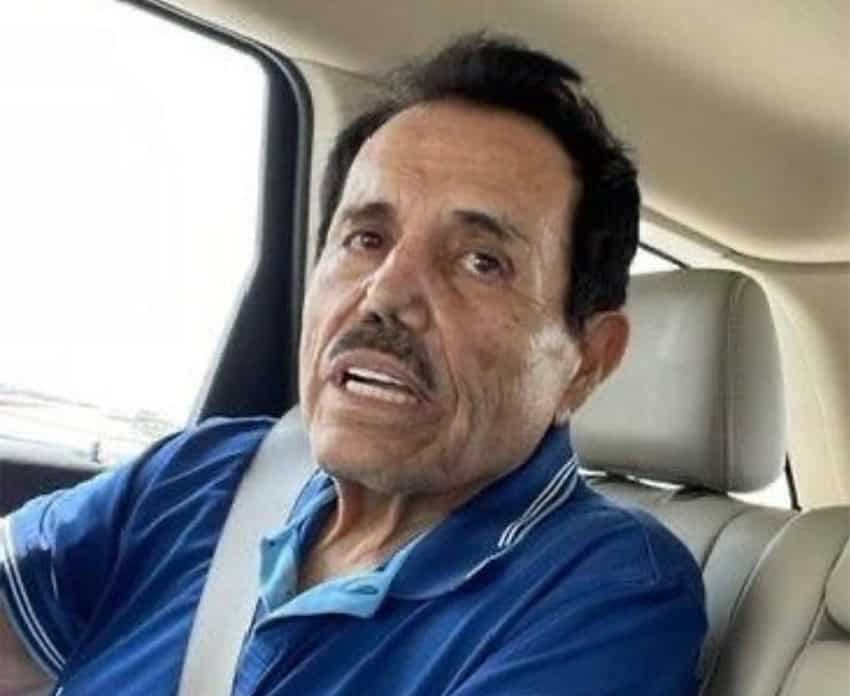
Given that he evaded justice for decades, it seems likely that he could have lived out the remainder of his life as a free man if he didn’t stray too far from his rugged mountain home.
How powerful was El Mayo?
In a word — very.
United States Attorney General Merrick B. Garland called Zambada an alleged leader of “one of the most violent and powerful drug trafficking organizations in the world.”
While El Chapo was a better known and flashier kingpin, El Mayo wielded enormous influence within the Sinaloa Cartel.
“This question of who was the biggest Sinaloan kingpin, El Mayo or El Chapo, has long been discussed. Chapo shot up to global rock-star status with his two prison escapes, his beauty queen wife and his meeting with Sean Penn,” Ioan Grillo, a Mexico-based journalist and author, wrote on his Substack site CrashOut Media on Friday.
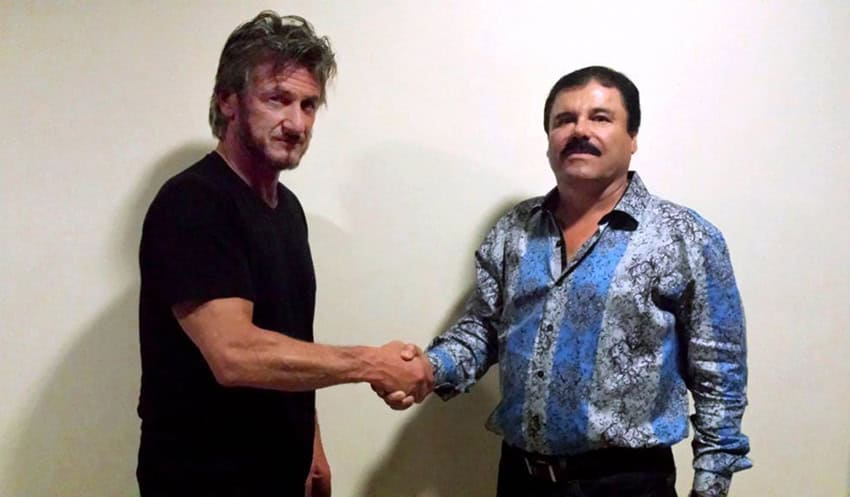
“But many I talked to on the ground in Sinaloa believed Mayo was the bigger player, and effectively the top man in the tangled network of traffickers we call the Sinaloa Cartel,” Grillo said.
Insight Crime, a think tank and media organization, described Zambada as “arguably the last member” of the Sinaloa Cartel’s “old guard.”
“He reportedly relied on several armed wings to operate. This included the Rusos and the Ántrax, which helped him maintain control over key trafficking corridors to the US-Mexico border, particularly in the northern states of Baja California and Sonora,” Insight Crime said.
What’s next for the Sinaloa kingpin?
Attorney General Garland said Thursday that Zambada faces charges of “fentanyl trafficking, money laundering, firearms offenses, kidnapping and conspiracy to commit murder.”
In a U.S. federal court in El Paso on Friday, El Mayo pleaded not guilty to the charges he faces.
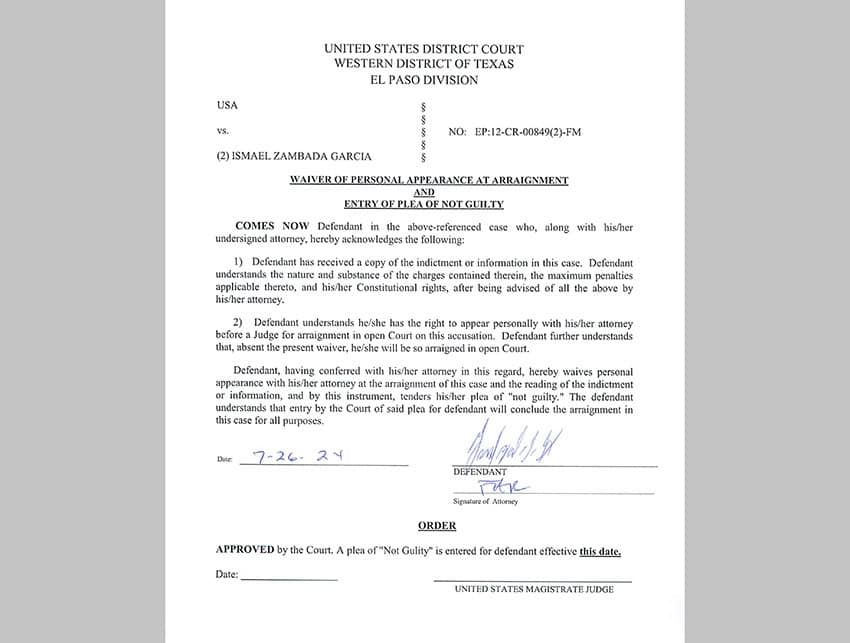
Frank Perez, a lawyer for Zambada, told The Los Angeles Times that his client did not voluntarily fly across the border and turn himself in.
“I have no comment except to state that he did not surrender voluntarily,” Perez said. “He was brought against his will.”
Arraignment and detention hearings are scheduled for next Wednesday in El Paso. Given that he pleaded not guilty, Zambado looks set to go on trial in the United States, just as El Chapo did over a period of three months in 2018 and 2019.
Guzmán Loera was found guilty on drug trafficking charges in February 2019 and sentenced to life in prison in July of the same year.
What impact will El Mayo’s arrest have on the Sinaloa Cartel and the flow of drugs to the US?
Falko Ernst, senior Mexico analyst for the NGO Crisis Group, wrote on X on Thursday that “amid all the incipient Mayo-palooza, we shouldn’t forget that we’re talking about a structure with a thousand heads that won’t fundamentally change shape because a kingpin or two get taken/take themselves out.”
“That would be blind, historically,” he added.
Zambada told Proceso in 2010 that nothing would change if he was arrested.
Ernst told The New York Times that the Sinaloa Cartel is already fragmented, and asserted that the arrests will probably trigger more in-fighting.

“If the narrative [of betrayal] gains traction, there will be bad blood in the organization,” he told The Guardian, referring to the possibility that Guzmán López tricked Zambada into going to the United States.
“There’s been quite a lot of violence between factions, and that might heat up as this story unfolds,” Ernst said.
Insight Crime described the arrest of El Mayo Zambada and Guzmán López as an “important but mostly symbolic victory.”
“While the capture of Zambada García marks the fall of the last remaining old-school drug trafficker in Mexico, sources told Insight Crime that he had largely taken a step back from the Sinaloa Cartel’s day-to-day operations in recent years,” the organization reported.
“… These captures are not likely to affect the flow of synthetic drugs, especially fentanyl, into the United States,” Insight Crime said.
How did Mexican authorities react to the arrest?
Security Minister Rosa Icela Rodríguez said Friday morning that Mexican authorities were not involved in the arrests of Zambada and Joaquín Guzmán López.
She told President Andrés Manuel López Obrador’s morning press conference that the Mexican government was awaiting further details about the arrests from its U.S. counterpart, including information about whether Zambada turned himself in.
López Obrador called for transparency from the U.S. government.
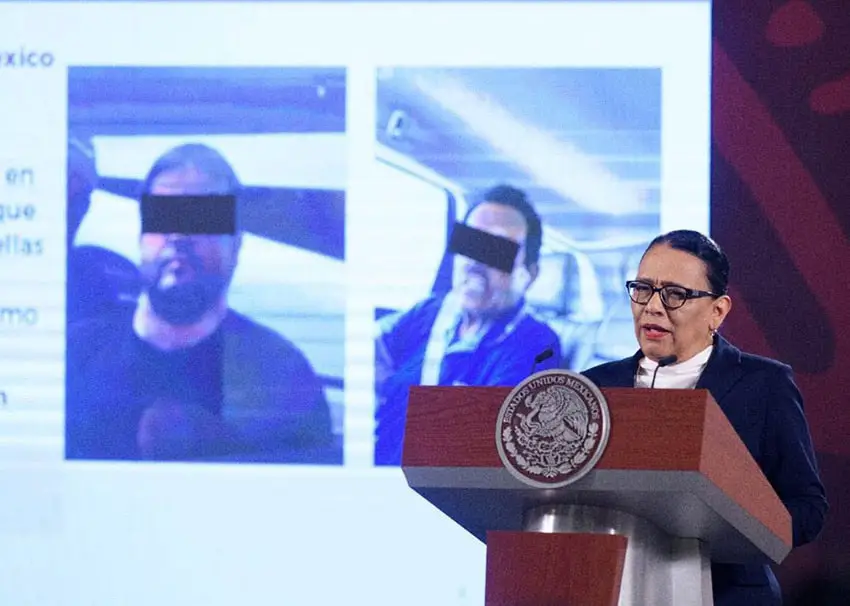
“The United States government has to provide a complete report, not just general statements, it has to inform, there has to be transparency,” he said.
Rodríguez said that the government considers the arrest of El Mayo Zambada as “positive,” as it does when any person who has committed a crime is taken into custody.
She also said she was surprised by the news of his arrest, as “everyone” was.
“Of course it is significant and it’s positive,” Rodríguez added.
Mexico News Daily